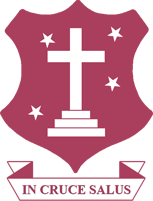What is a Vocation?
Jesus calls men in every age to be ‘brothers-in-arms’ with him as priests. But he said that to accept such a call requires willingness to ‘Enter by the narrow gate’, and warned ‘It is a hard road’. However he also promised that it is a gate and a road that ‘lead to life’ (c.f. Matthew 7:13-14). Any vocation worthy of the name, whether single, married, or religious, demands courage, trust, generosity, compassion, dedication, resilience and initiative.
A diocesan priest lives and ministers in a particular geographic area called a diocese, which is led by a bishop. New Zealand has six Catholic dioceses: the Archdiocese of Wellington, and the dioceses of Auckland, Hamilton, Palmerston North, Christchurch and Dunedin. A priest dedicates himself to a life of prayer and celibacy, as Jesus did himself for the sake of the kingdom, and promises obedience to his bishop, as Jesus did to the mission given him by his Father. A priest’s foremost responsibilities are to lead his parish community in the celebration of the sacraments (especially the Mass), in preaching, and in prayer. He journeys with his people by listening to them and by supporting, encouraging, consoling, teaching and guiding them along the path of faith, hope, and charity so that all, together, may realise their dignity as brothers and sisters of Christ, children of God.
The template of Jesus
The first-chosen apostles and evangelists of Jesus were well-socialised, mature men with significant life and work experience as fishermen, tradesmen, legislators, financiers, medics and scholars who were both knowledgeable of, and well-grounded in, their Jewish faith.
Peter and his brother Andrew, James and his brother John, were fishermen; they owned their own boats, could tend their own equipment, and cooperated with others in a routine, physically demanding, risky business. They evidently had a strong sense of family ties and loyalty. The scriptures make mention of Peter’s mother-in-law so he was a married man (although likely a widower as there is no mention of his wife or of any children).
James the younger and his brother Jude are considered likely to have also been fishermen, along with Philip and Simon called the zealot.
Tradition indicates that Bartholomew was a scholar in the law and the prophets.
Matthew, also known as Levi, was a tax official. He was the principle writer of the Gospel of Matthew, which indicates he was a well-educated scholar as well as financier. Judas Iscariot was also a financier (treasurer).
Tradition has it that Thomas the doubter took the Gospel to India and may have been a builder.
The evangelist Luke, the principal writer (or source) of the Gospel that bears his name, was a doctor.
Paul was a tent maker, well-traveled, both a Jewish and Roman citizen who, after his conversion experience at around age 25, took a further decade or so before he returned to Jerusalem to become an accepted apostle and to commence his public ministry.
Paul's fellow apostle to the Gentiles, Barnabas, is thought to have been a scholar under the tutelage of Gamaliel, the renowned Jewish teacher of the law.
Jesus himself was a carpenter who commenced his public ministry when he was about 30.
Qualities sought
The NZ Catholic Bishops Conference have stated in their booklet entitled ‘Programme for Priestly Formation for Aotearoa-New Zealand (s168): "At all stages of seminary formation, the applicant must give evidence of an overall personality balance, moral character, and proper motivation. This includes the requisite human, moral, spiritual, intellectual, physical, and psychological qualities for priestly ministry."
When a man enters the seminary he engages in a process of self-discernment, under the guidance of the appointed staff, as to what God is calling him to do with his life and the particular form of discipleship he was born for. Overall, by the end of the normal six-and-a-half year programme of study and formation for priesthood, an applicant would be expected to:
*Be of sound physical and mental health;
*Have good communication skills and ability to relate well to others;
*Be well-grounded in the scriptures, teachings and practices of the Catholic faith;
*Exhibit academic proficiency;
*Have a well-established regular prayer life;
*Have a stable, well-managed personal life,
*Have a deep care for the wellbeing of others;
*Have a firm sense that God is calling him to a life of service as a priest, for the salvation of souls and the common good of people.
Enquiries
The first point of contact for anyone who thinks he may have a calling to be a priest is normally one’s local parish priest, or the diocesan vocations director who has overall responsibility for guiding and supporting enquirers. The contact details of the vocations director for each of the six dioceses of New Zealand are listed below.
Diocesan Vocation Directors
Palmerston North Diocese
Fr Trung Nguyen
Catholic Parish of New Plymouth 573 Devon Street East Fitzroy New Plymouth 4312
Ph 06 757 3682
Email: vocations@pndiocese.org.nz
Christchurch Diocese
Fr Tien Cao
Email: vocations.chch@gmail.com
Dunedin Diocese
Fr. Mark Chamberlain
420 Great King St
PO Box 6090
Dunedin North 9030
Ph 03 479 0066
Email: machamberlain61@gmail.com
Auckland Diocese
Fr Marchellino Park St Mary’s Parish Mt Albert Auckland Ph 09 846 6775
Hamilton Diocese
Fr Joe Stack
625 Alexandra St
PO Box 191
Te Awamutu 3480
Ph 07 871 6109
Email: vocations@cdh.org.nz
Wellington Archdiocese
Fr Andrew Kim
St Theresa's Parish
210 St Andrew's Road, Plimmerton
Porirua 5026
Email: andlekis@hotmail.com
Holy Cross Seminary Contact Details
Holy Cross Seminary
44 Vermont Street
PO Box 47406
Ponsonby
Auckland 1144
New Zealand
Ph 09 360 5375
Website: www.holycross.org.nz


